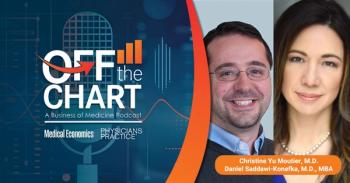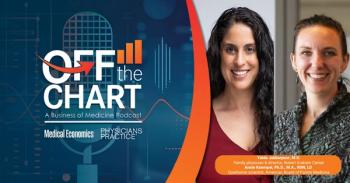
The True Value of Board Certification
Our July/August story titled “Is Board Certification Overrated?” generated a lot of great letters to the Physicians Practice office, some of which you can read in our September issue. But with too many letters to print and not enough space, we wanted to expand the conversation.
Our July/August story titled
So we invited one of the article’s sources, Dr. Eric Grosch, to elaborate a bit on his comments in the article that there is no concrete evidence that board certification has an advantage to physician performance. We had hoped to have Grosch debate someone on the issue of board certification online, but could not find an association, group, or even fellow physician to defend the merits.
Instead, we asked Dr. Grosch to take the “first shot” in what we hope is an ongoing conversation about board certification: both pro and con. Below is his opening salvo.
We encourage you to enter your own comment about his thoughts, share your own on how you view board certification, or even defend the practice as still relevant in the industry. Keep it professional, keep it on topic, and most of all, keep it going. There was a lot of feedback in the form of letters based on this article, so we know the topic resonates with you, so share your thoughts and check back frequently to see if anyone responded to your post or if there is a new post you want to weigh in on.
From Dr. Grosch, a former practicing internist and current law school student:
“Patients tend to believe that, if only physicians were well-enough educated, well-enough trained, skillful enough, knowledgeable enough, “certified” enough, all would be well. Physicians could then assure or guarantee clinical outcomes. Because some patients experience bad outcomes, the belief is that their physicians must not be well-enough educated and trained, skillful enough or knowledgeable enough to have produced favorable outcomes, especially if they do not hold board-certification. Comfort through a physician’s assurance (i.e., guarantee) of a pre-determined, certain and favorable clinical outcome is an ancient quest. Patients long for deterministic certainty in our stochastic universe. [1]
‘Certified,’ has Latin roots in certus (true), and facere, (to make), and the term applied originally to attesting authenticity of documents. Certifying authenticity of inanimate documents is rational but certifying physicians in hope of pre-determining their performance is not. Toulmin [2] emphasized the uncertainty and ambiguity that make guaranteeing medical care unfeasible. Katz addressed the ethics of guarantees in medicine:
[Physician and patient] are voyagers on the high sea of uncertainty. . .Acting out of fear that...acknowledgment of medicine’s limitations will drive patients into the arms of quacks has its own dangers. In promising more than medicine can deliver, physicians adopt the practices of quacks ...[3]
ABMS vaguely suggests that board-certified physicians produce more favorable clinical outcomes than noncertified physicians but stops short of guaranteeing it. The AMA’s Code of Medical Ethics forbids making a treatment-fee contingent on outcome of treatment.
Horowitz referred to (naïve)
References:
1. Ierodiakonou K, Vandenbroucke JP. Medicine as a stochastic art. Lancet. 1993 Feb 27;341(8843):542-3
2. Toulmin S. (1981) On the Nature of the Physician’s Understanding. Journal of Medicine and Philosophy. February:1(1):32-50 @44
3. Katz J. (1984) Why doctors don’t disclose uncertainty. Hastings Center Report. Feb;14(1):35-44
4. Grosch Eric N. Does specialty board certification influence clinical outcomes? Journal of Evaluation in Clinical Practice. 2006;12(5):473-81
Newsletter
Optimize your practice with the Physicians Practice newsletter, offering management pearls, leadership tips, and business strategies tailored for practice administrators and physicians of any specialty.








